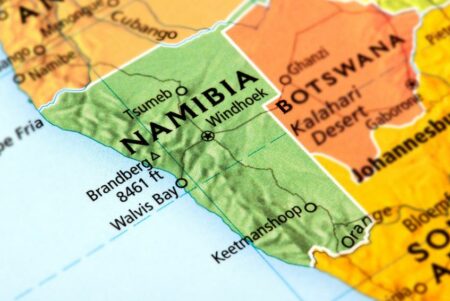Namibia, a country rich in natural resources and potential for renewable energy development, stands at the precipice of a pivotal transition towards a low-carbon economy.
Browsing: Namibia
Namibia is setting its sights on an ambitious future, aiming to leverage both abundant renewable resources and recent oil & gas discoveries to power economic growth.
The recent passing of former Namibian President Hage Geingob has stirred discussions about his ambitious vision for the nation’s energy landscape, particularly the establishment of a synthetic energy hub.
Namibian President Hage Geingob has made a compelling call to world leaders, urging them to invest billions in Namibia’s green hydrogen initiative and the requisite infrastructure during the global renewables and energy efficiency pledge at the 28th Conference of the Parties (COP28) in Dubai.
Namibia, a nation blessed with abundant renewable resources, has embarked on an audacious $20 billion green hydrogen project, backed by the European Union (EU). While the project promises economic revitalization and environmental sustainability, recent investigations have raised concerns about its potential impact on nature and local livelihoods.
Namibia is set to become a key player in the green hydrogen landscape as Germany’s Bundesanstalt für Materialforschung und-prüfung (BAM) announces plans for a green hydrogen pilot plant and refueling station near Walvis Bay.
The European Commission’s ambitious plan for a €1 billion green hydrogen and raw materials partnership with Namibia is facing uncertainty as the southern African nation refrained from signing the multicountry “Samoa Agreement.”
Namibia is on the cusp of an energy revolution, as the Environmental Investment Fund (EIF) embarks on a groundbreaking project that could reshape the nation’s energy landscape.
In recent years, green hydrogen has staged a remarkable comeback and is emerging as a linchpin in the pursuit of a climate-neutral economy. It promises to play a pivotal role, particularly in addressing emissions in challenging sectors such as transport, heating, and heavy industry, and offers a solution for inter-seasonal energy storage. This resurgence of green hydrogen, driven by both energy security and decarbonization imperatives, is now not only fostering economic opportunities but also birthing a new era of EU-Africa relations.
European Union and Namibia have officially endorsed a strategic partnership roadmap for sustainable raw materials and renewable hydrogen.






